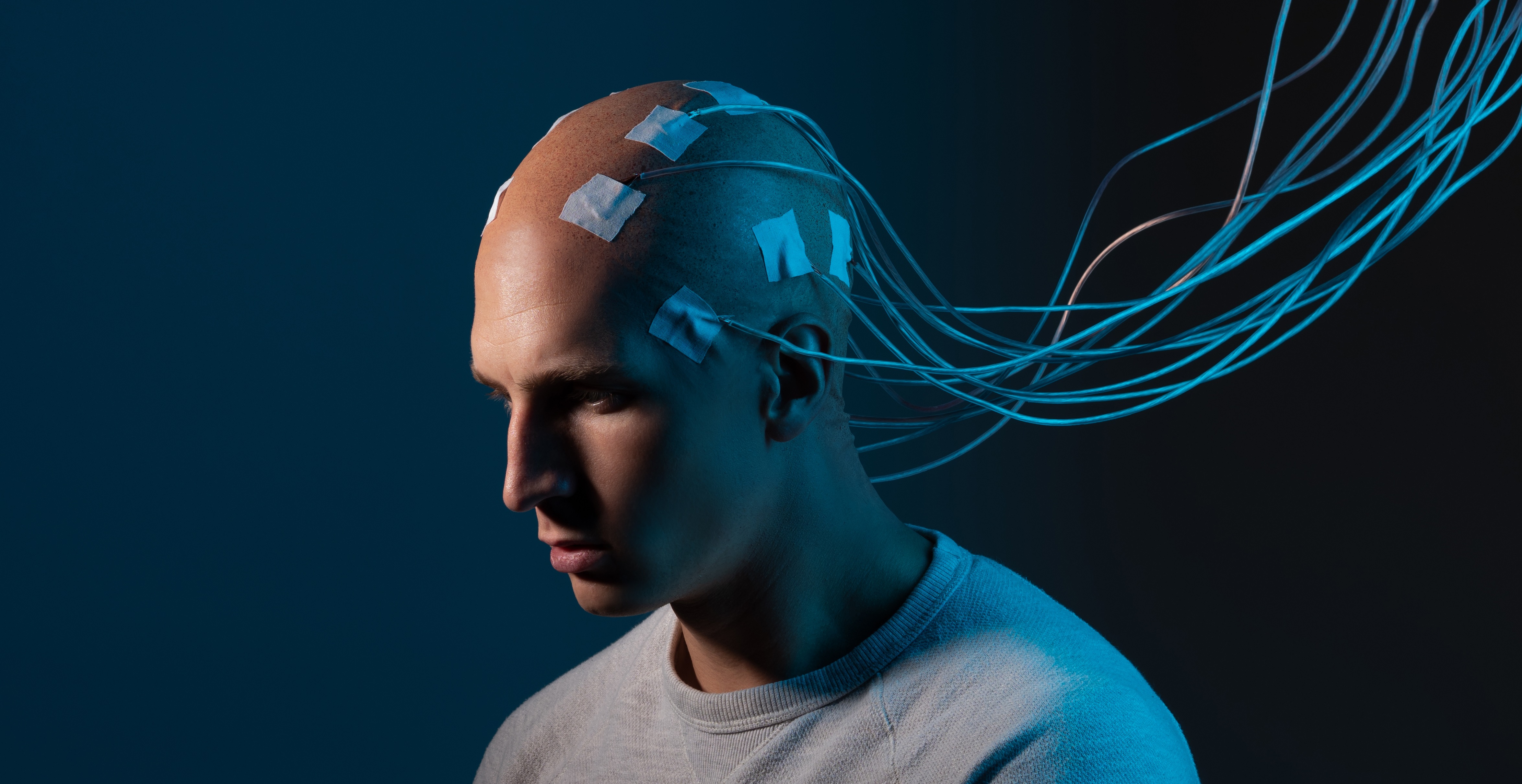Forget PS5 DualSense — brain control could be the next big thing for gaming
Valve's Gabe Newell champions brain control interfaces as the future for gaming experiences and beyond

Here at Tom’s Guide our expert editors are committed to bringing you the best news, reviews and guides to help you stay informed and ahead of the curve!
You are now subscribed
Your newsletter sign-up was successful
Want to add more newsletters?

Daily (Mon-Sun)
Tom's Guide Daily
Sign up to get the latest updates on all of your favorite content! From cutting-edge tech news and the hottest streaming buzz to unbeatable deals on the best products and in-depth reviews, we’ve got you covered.

Weekly on Thursday
Tom's AI Guide
Be AI savvy with your weekly newsletter summing up all the biggest AI news you need to know. Plus, analysis from our AI editor and tips on how to use the latest AI tools!

Weekly on Friday
Tom's iGuide
Unlock the vast world of Apple news straight to your inbox. With coverage on everything from exciting product launches to essential software updates, this is your go-to source for the latest updates on all the best Apple content.

Weekly on Monday
Tom's Streaming Guide
Our weekly newsletter is expertly crafted to immerse you in the world of streaming. Stay updated on the latest releases and our top recommendations across your favorite streaming platforms.
Join the club
Get full access to premium articles, exclusive features and a growing list of member rewards.
The PS5’s DualSense controller might have next-gen haptics, but the future of game control could be all in your head, literally.
At least that’s what Gabe Newell, president and co-founder of gaming giant Valve, thinks, who touted brain-computer interfaces (BCI) as the potential the future of game control and more. And Valve is working on making powerful BCI tech a reality.
- Where to buy PS5 — the latest PS5 restock updates
- Here are the best VR games to play right now
- Plus: Nintendo just hit with another Joy-Con drift lawsuit
Speaking in an interview with 1 News (flagged by The Verge), Newell said a lot of Valve's product design sounds “like science fiction,” but BCI tech could deliver better ways to experience games or digital environments.
Newell used sci-fi movie The Matrix as an example of using BCIs to effectively create experiences in one’s mind that will make the real-world in comparison "seem flat colorless, blurry compared to the experiences you’ll be able to create in people’s brains.” And he explained how you’d be able to effectively edit your mood to decide who you want to be in BCI-based experiences.
All this sounds like some navel-gazing tech speculation. But Valve is actually working with OpenBCI, an open-source community working on creating BCI software and tools, to find ways for developers to better understand the signals coming from a person’s brain.
“We’re working on an open-source project so that everybody can have high-resolution [BCI] read technologies built into headsets,” explained Newell.
How exactly this will play into gaming is tricky to predict. But if developers could better interpret brain signals then they could dynamically change what’s going on in a game, say ramping up the number of enemies thrown at a player if their brain signals show their attention is drifting. Or it could enable more finesse and control over a game, allowing players to trigger effects without pressing a button, letting them do more at once.
Get instant access to breaking news, the hottest reviews, great deals and helpful tips.
There are already peripherals that can interpret brain signals into game controls, but these are somewhat rudimentary. And they're also limited in scope, as Newell sees BCIs as a means to augment people's lives outside of gaming.
Reprogramming yourself with brain control tech
For example, Newell explained how a BCI could enable you to effectively program yourself to go to sleep, say on a long-haul flight. Then you could wake up with your circadian rhythm correct to the time zone you're in.
This might sound bizarre, but Newell noted it could be something to replace the need to take sleep medicines or even fluff your pillows in a certain way.
Newell said that anyone working on virtual reality headsets not at least looking into the application of BCI is doing it wrong. And he predicted that software developers working on interactive experiences will “absolutely be using” a VR headset modified for some form of BCI in the near future.
That's not to say there’ll be a consumer-grade BCI-equipped VR headset you’ll be able to pop onto your head anytime soon. But Valve wants to at least get the right tools and tech into the hands of software developers so they have a platform to build BCI experiences upon.
Various sci-fi movies and the likes of Cyberpunk 2077 make the whole idea of brain interfaces and augmentation a scary prospect, notably the fear of being hacked. And Newell acknowledged that BCIs present an unnerving concept for people to swallow.
However, he used the example of laser eye surgery as being something that many would balk at initially; the idea of searing one’s eye with beams of light used to be unfathomable. But people soon became used to it and now LASIK treatment is commonplace.
Newell said good experiences with BCI tech and applications will build up confidence in them, much like how the use of cell phones used to be seen as intrusive to privacy, but have now become commonplace.
With all that being said, you're not going to be able to control your PS5 or Xbox Series X with your mind anytime soon. But the idea of gaming, and indeed wider experiences, being augmented by the power of your brain might not simply be sci-fi fodder.
Give it five years or so and we’d not be surprised if some of our picks for the best VR headsets contain goggles with BCI tech integrated into them.

Roland Moore-Colyer a Managing Editor at Tom’s Guide with a focus on news, features and opinion articles. He often writes about gaming, phones, laptops and other bits of hardware; he’s also got an interest in cars. When not at his desk Roland can be found wandering around London, often with a look of curiosity on his face.
 Club Benefits
Club Benefits










